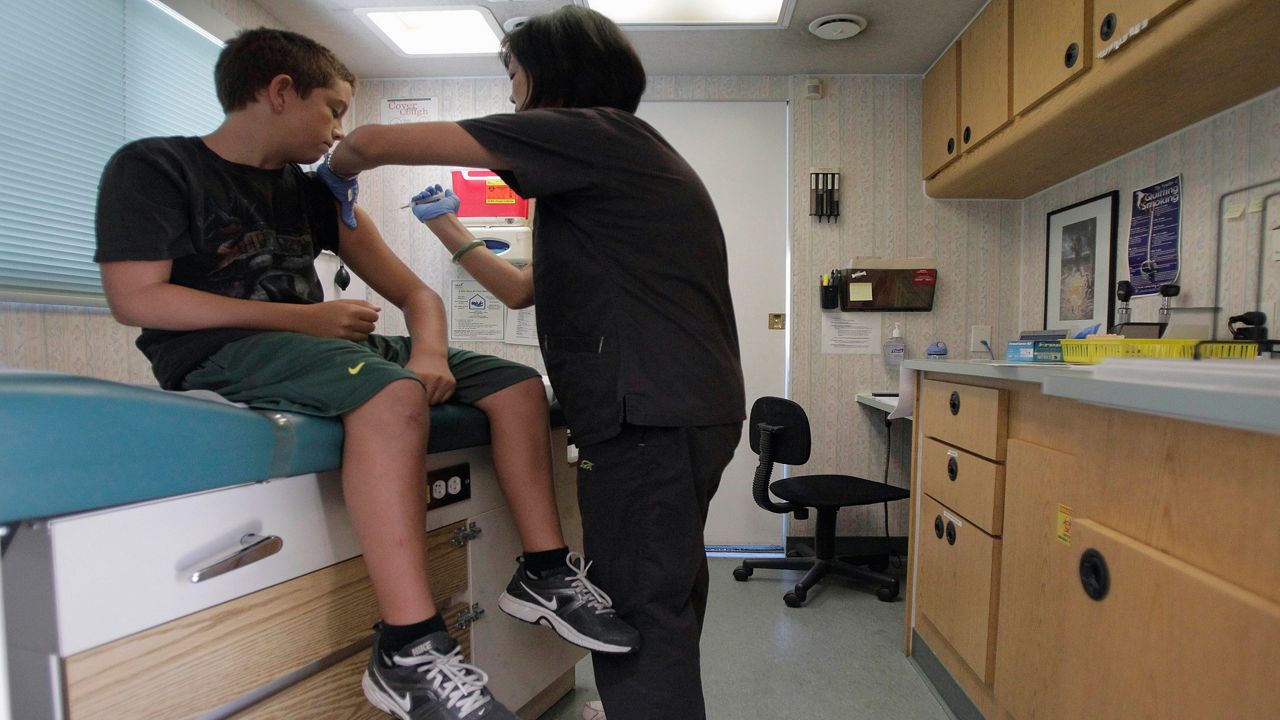WISCONSIN — The Wisconsin Department of Health Services (DHS) noted a significant increase in pertussis — also known as whooping cough — cases in the state.
As of Sept. 13, DHS had confirmed 625 cases of pertussis in the state. Since the beginning of 2024, two-thirds of counties in the state had reported at least one case of pertussis. Wisconsinites between 11- to 18-years-old made up about half of the confirmed cases in the state, but DHS officials stressed people can contract pertussis at any age.
In 2023, there were just 51 confirmed cases in Wisconsin. That means that pertussis cases are more than 10-times higher than they were last year.
“While it’s not uncommon for Wisconsin to see more cases of whooping cough compared to other years, this year there has already been more than 10 times as many cases as were reported in all of 2023,” said Dr. Stephanie Schauer, DHS immunization program manager. “Whooping cough can be very serious, especially for infants. The best way to protect yourself and others is to stay up to date on your vaccines.”
DHS said both statewide and nationwide, pertussis case counts are similar to pre-pandemic levels.
Pertussis is a serious respiratory infection caused by bacteria and can spread easily.
Pertussis begins with cold-like symptoms before developing into a serious, persistent cough, which can last for months. Coughing episodes can lead to difficulty breathing, gagging and vomiting, per DHS. Some people may also make a high-pitched “whoop” after they cough, hence it also being known as whooping cough.
Health officials said pertussis can lead to complications including pneumonia and death, especially in young children.
DHS said it is important to treat pertussis early. If you have symptoms of pertussis, stay home and call your doctor. If you have difficulty breathing, you need to seek immediate medical help, per health officials.
Health officials said the best way to prevent the spread of pertussis, avoid hospitalization and protect yourself from severe symptoms, is to ensure you are up to date on pertussis vaccines.
The following vaccines are recommended by the Centers for Disease Control and Prevention:
- From 2-months-old to 6-years-old, children should receive five doses of the DTap vaccine
- Children should receive one dose of the Tdap vaccine between 11- to 12-years-old
- Adults who have never had a pertussis vaccine, should receive one dose of the Tdap vaccine
- Pregnant people should receive a Tdap vaccine sometime between 27- to 36-weeks of pregnancy. This should be done during each pregnancy, even if the person has been pregnant before and will protect a newborn from pertussis until they are old enough for a DTap vaccine
Wisconsinites can access their immunizations records, here. Those who cannot access their records should contact their doctor’s office or local health department for updated information.
Wisconsinites who want the vaccine but do not have health insurance or those whose insurance does not cover vaccines may be eligible to receive assistance from Vaccines for Children or Vaccines for Adults programs.
Health officials also recommended the following steps to stop the spread of germs:
- Wash your hands often for 20 seconds with soap and water
- If you feel sick, stay home and stay away from other people
- Do not be near other people who are sick
- Do not touch your nose, eyes or mouth if possible
- If you cough or sneeze, make sure you cover your nose and mouth. Make sure kids do, too



